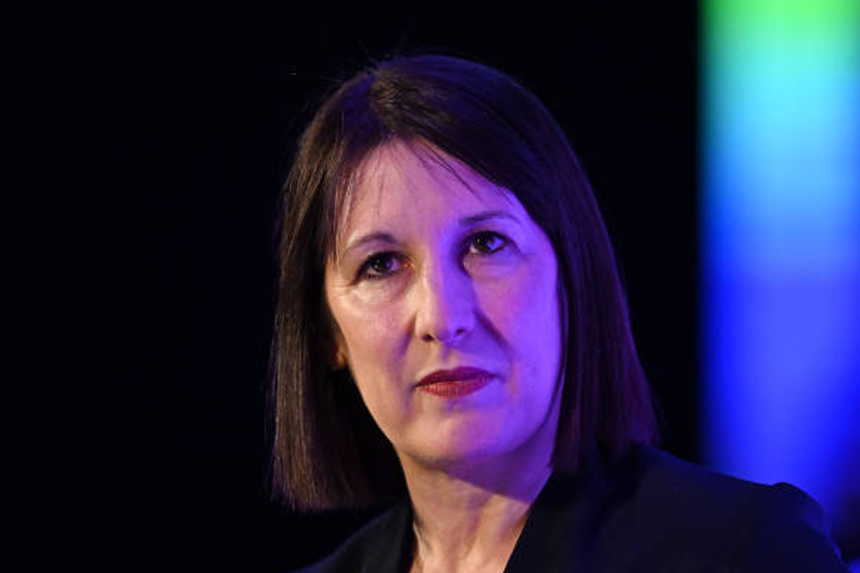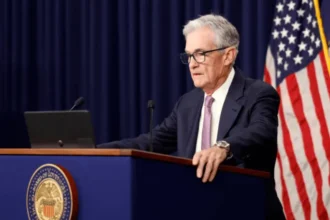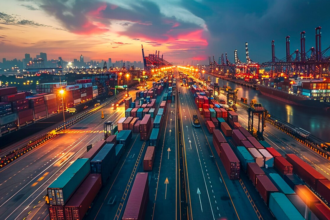Introduction: Chancellor Rachel Reeves’ planned trip to China has become a point of contention as economic challenges, including a significant drop in the pound and soaring government borrowing costs, continue to worry the UK. Despite calls from opposition parties to cancel the visit, Culture Secretary Lisa Nandy defended the Chancellor Rachel Reeves’ decision, emphasizing the importance of strengthening the UK-China relationship.
- Why Are Opposition Parties Calling for the Cancellation of the Trip?
- What Are the Economic Challenges Facing the UK?
- How Are Global Economic Trends Affecting the UK?
- Why Is the Chancellor’s Visit to China So Important?
- How Are UK-China Relations Affecting the Chancellor’s Trip?
- What Are the Government’s Borrowing and Fiscal Challenges?
- What Difficult Decisions Will the Chancellor Face in the Coming Months?
- Conclusion: What Lies Ahead for Chancellor Rachel Reeves?
Why Are Opposition Parties Calling for the Cancellation of the Trip?
Opposition parties have sharply criticized the Chancellor Rachel Reeves’ decision to move ahead with her three-day visit to China, aimed at bolstering trade and economic ties between the two nations. The visit comes at a time when the UK is facing significant economic pressure, with the pound hitting its lowest point in over a year and government borrowing costs climbing to their highest levels in 16 years.
However, Culture Secretary Lisa Nandy stood by the Chancellor Rachel Reeves’ plan, asserting that Reeves’ trip was essential for the UK’s future economic relationships. “The Chancellor should take seriously the UK’s relationship with China, the world’s second-largest economy,” Nandy stated.
What Are the Economic Challenges Facing the UK?
Rising government borrowing costs have fueled fears that tax increases or spending cuts might be on the horizon. The government is facing the challenge of adhering to its self-imposed rule not to borrow to fund day-to-day expenses. Should this policy remain in place, a reduction in public services spending could be a consequence, potentially affecting vital sectors such as health, education, and welfare.
Government borrowing costs, which have been on the rise for several months, increased further recently, contributing to market uncertainty. On Thursday, the pound dipped again at the market open, continuing its downward trajectory. Analysts note that it is unusual for both the pound and borrowing costs to fall simultaneously, but concerns over the strength of the UK economy appear to have driven the pound lower.
The Treasury, however, ruled out any emergency intervention, maintaining that the markets were functioning “in an orderly way.” Despite these reassurances, the rise in borrowing costs is being felt globally, with similar trends seen across major economies, particularly in the United States.
How Are Global Economic Trends Affecting the UK?
The rise in government borrowing costs has been largely attributed to global trends. According to Sir John Gieve, former deputy governor of the Bank of England, long-term yields in the UK have mirrored those in the US, driven by investor concerns about US President-elect Donald Trump’s proposed tariffs on imports from Canada, Mexico, and China. This has led to rising inflationary fears, pushing up borrowing costs worldwide.
In the US, government bond yields have surged, with the 10-year Treasury rate rising to 4.75%. Gieve pointed out that “the rise in yields here reflects the global trend, particularly the changes in the US economy under President Trump.” He emphasized that the UK’s borrowing costs have increased as a consequence of global market conditions, not because of any domestic policy failures.
Why Is the Chancellor’s Visit to China So Important?
Chancellor Rachel Reeves is traveling to China alongside senior financial figures, including the Governor of the Bank of England and the Chairman of HSBC. During the trip, she will meet with China’s Vice Premier He Lifeng in Beijing before flying to Shanghai to engage with UK businesses operating in China. The UK government aims to revive an economic dialogue with China, which has been dormant since the pandemic.
Despite the growing economic uncertainty at home, the UK government views this visit as an important step toward reinvigorating economic relations with China, a key global player. “The relationship with China is too important to ignore,” Nandy added. “This visit is about strengthening ties with one of the world’s largest economies, which can offer opportunities for trade and investment.”
How Are UK-China Relations Affecting the Chancellor’s Trip?
The trip comes at a time when UK-China relations are strained, particularly due to concerns over China’s political actions. Issues such as allegations of Chinese hacking and spying, the treatment of pro-democracy figures in Hong Kong, and China’s growing assertiveness in international politics have caused tensions. Despite these challenges, the UK government believes that maintaining open lines of communication is vital for future economic growth.
Both the Conservative and Liberal Democrat parties have criticized the Chancellor Rachel Reeves for proceeding with the visit rather than addressing the domestic economic crisis. Shadow Chancellor Mel Stride accused Reeves of being “missing in action” while the UK faces critical economic challenges.
What Are the Government’s Borrowing and Fiscal Challenges?
UK governments traditionally spend more than they raise in tax, leading to borrowing to fill the gap. However, recent developments have made borrowing more expensive. The yield on a 10-year government bond has surged to its highest level since 2008, while the yield on a 30-year bond has reached its highest since 1998. This indicates that the cost of borrowing for the UK government is rising.
Reeves, who has committed to only one fiscal event a year, is unlikely to announce new taxes or fiscal measures until the autumn Budget. However, the rising borrowing costs could force her to act sooner than planned, possibly necessitating a squeeze on public spending.
What Difficult Decisions Will the Chancellor Face in the Coming Months?
On 26 March, the government’s independent forecaster will release its updated projections for the economy, including an assessment of whether Chancellor Rachel Reeves will meet her fiscal rules. These projections will guide the government’s spending review in June, which will determine the funding allocations for various departments.
Sir John Gieve noted the growing difficulty in sticking to the fiscal rules, especially as borrowing costs rise. He said, “The Treasury has tried to reassure the markets by reaffirming our fiscal rules, but it is becoming increasingly clear that this will be very difficult to maintain.” He added that the Chancellor faces difficult decisions in the upcoming spending review and the autumn Budget.
“The choice she faces is stark,” Gieve said. “Should she raise borrowing, knowing that higher interest rates could limit her ability to do so? Or does she raise taxes again, or implement severe cuts in public services?”
Conclusion: What Lies Ahead for Chancellor Rachel Reeves?
As Chancellor Rachel Reeves embarks on her trip to China, her economic decisions back home will undoubtedly shape the UK’s future fiscal policy. While her visit to China aims to foster better trade relations, the UK’s economic outlook remains uncertain, with difficult decisions looming on the horizon. The growing concerns over borrowing costs, tax increases, and potential cuts to public services mean that Reeves will need to navigate a challenging political and economic landscape in the coming months.








